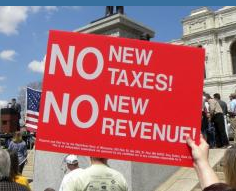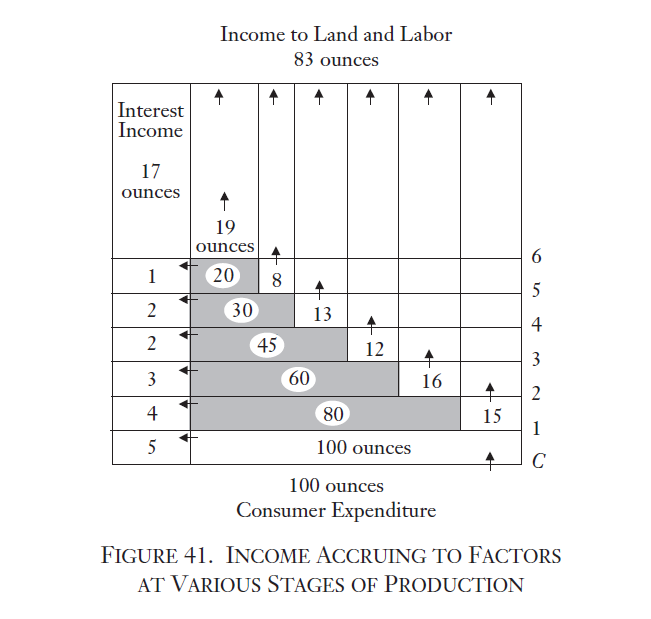Whether you have watched The Sopranos, Goodfellas, or The Godfather, the gist of those stories is always the same: a mafia boss gets involved with a private person or sometimes a businessowner and demands a fee to be paid by midnight tomorrow, otherwise said person will lose a finger or two and maybe a kneecap as well. An analogy often made by libertarians is that the government operates similarly to the mafia. The government demands money in form of taxes, which they redistribute as they please. Both transactions work coercively, and while the government may not break your fingers, if you refuse, they can jail you or violate your property rights. You may or may not agree with this comparison, but the argument about the legitimacy of fiscal policies, especially
Topics:
Rosanna Weber considers the following as important: 6b) Mises.org, Featured, newsletter
This could be interesting, too:
Nachrichten Ticker - www.finanzen.ch writes Die Performance der Kryptowährungen in KW 9: Das hat sich bei Bitcoin, Ether & Co. getan
Nachrichten Ticker - www.finanzen.ch writes Wer verbirgt sich hinter der Ethereum-Technologie?
Martin Hartmann writes Eine Analyse nach den Lehren von Milton Friedman
Marc Chandler writes March 2025 Monthly
Whether you have watched The Sopranos, Goodfellas, or The Godfather, the gist of those stories is always the same: a mafia boss gets involved with a private person or sometimes a businessowner and demands a fee to be paid by midnight tomorrow, otherwise said person will lose a finger or two and maybe a kneecap as well. An analogy often made by libertarians is that the government operates similarly to the mafia. The government demands money in form of taxes, which they redistribute as they please. Both transactions work coercively, and while the government may not break your fingers, if you refuse, they can jail you or violate your property rights. You may or may not agree with this comparison, but the argument about the legitimacy of fiscal policies, especially taxation, is not only prominent in libertarian circles, but goes as far back as the American Revolution.
“No taxation without representation!” declared American colonists after having been subject to taxation by the British crown for many decades. They deemed the taxation to be illegitimate, as they were not represented in the British Parliament, and this became a prime reason for the American Revolution against the British Empire. But that was more than 250 years ago, so does that mean all those who pay their taxes nowadays are represented one way or another in the system we live in?
It would be possible to start by asking why taxation is required in the first place. Economists like Dr. Walter Block make good arguments for why total privatization of everything will work better and more efficiently than an entity of politicians making centralized decisions for the entire nation with other people’s money. But let us play devil’s advocate and say taxation is needed to obtain organized civilization as we know it. According to the slogan, taxation would then only be legitimate if those who pay taxes are also represented in government.
The first problem here is the belief that everyone is a net taxpayer or that all are equally subject to taxation. As taxation is a classic example of redistribution, some people will have to be net taxpayers while others are net recipients of taxes. Take government employees, for example. Even though they formally pay taxes, their salaries are tax money to begin with. To say they pay taxes is a mistake in accounting, as they are net recipients. In the case of elected officials who collect government salaries, this is especially problematic. Those who are arguably the best represented (i.e., politicians who have the power to make policy changes themselves), are those who in many cases may be net tax receivers
But can “taxation with representation” be moral at least in theory? Perhaps not.
In his book The Machiavellians, James Burnham describes democracy as an unattainable utopia. Certain excluded groups like those under the arbitrary age of eighteen in most countries or criminals have no vote in elections. Even though there are good reasons for these laws, it still shows a flaw in the ideal of representative democracy. Some may argue that children do not have to pay taxes and therefore do not need representation, but they are still affected by tax cuts and raises, for these will leave their parents with more or less money to spend on them. However, they are not represented in government.
In addition to the exclusion of some members of the social group, the decisions made by the numerical majority of the group are seen as the decisions of the entire group. It becomes almost impossible to have a unanimous outcome in an election when millions of citizens make their way to the polling stations. Those who are in the minority will therefore never be represented, yet still must pay taxes like everyone else. Both rules are unavoidable, but they do shine a light at the flaws of the democratic system.
Even if we overlook those flaws, there is a question about leadership which Burnham raises in his book, namely the notion of self-governing through representatives, which he describes as “suspiciously simple.” What does self-government, which democracy relies on so heavily, mean for the individual? All power lies with the masses, ergo the masses are sovereign according to democratic principle. But the mere act of electing politicians—our representatives—is a contradiction to sovereignty itself. It is virtually impossible to represent the sovereign, because being “sovereign” means to make one’s own decisions. They cannot be made by someone else, otherwise sovereignty will have shifted hands. At best, the sovereign can employ someone to fulfill his demands, but it won’t come as a surprise that this is rarely what politicians do. Politicians rarely regard themselves simply as delegates or agents of a group of voters. And even if they did, it would be impossible to represent all of the voters, and various minority groups would be left unrepresented.
Realistically, one can only truly represent oneself, as vastness of opinions on different political, social, and economic issues denies fully accurate representation by someone else. This shows how by electing politicians, sovereignty has shifted; it does not and cannot lie with the people in a democracy. Leadership by the few prohibits this, whether those few are elected by the masses, rule through God-given right, or govern by militant force.
[RELATED: “The Indefensibility of Political Representation” by Gerard Casey]
This inherent nature of any organization has been described as the iron law of oligarchy by Robert Michels. No matter under what social or economic circumstances, leadership is an inevitable phenomenon of any kind of organization or social group and, as we have established, will never allow for the self-government of masses as sovereigns.
Therefore, under current circumstances, taxation without representation is likely to be the norm for a sizable portion of the population in spite of countless efforts at meaningful representation. But try and explain this to the tax man the next time you file your annual tax report. Or maybe invite him to view a Sopranos marathon. It might help ease the pain a little.
Tags: Featured,newsletter








